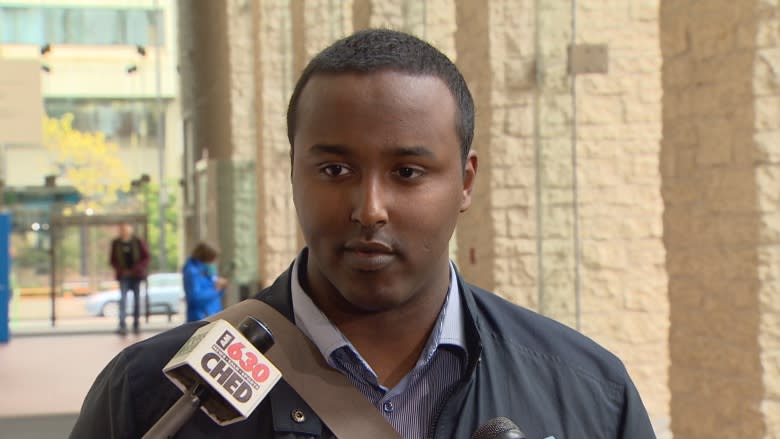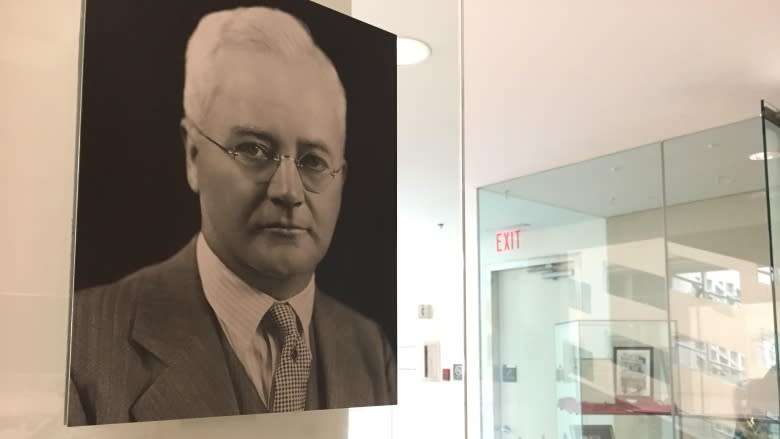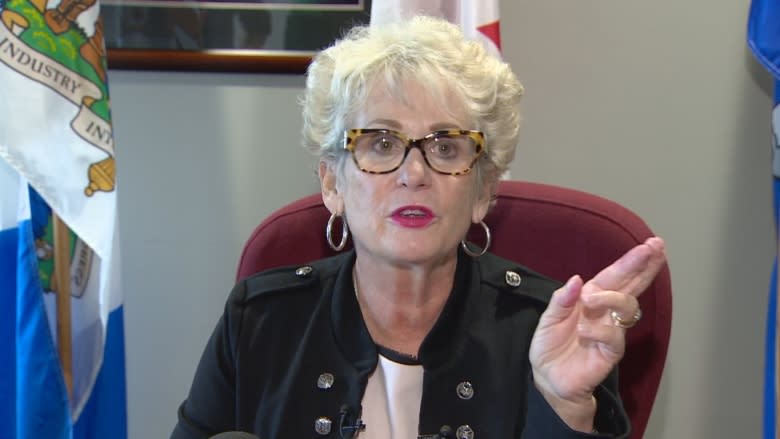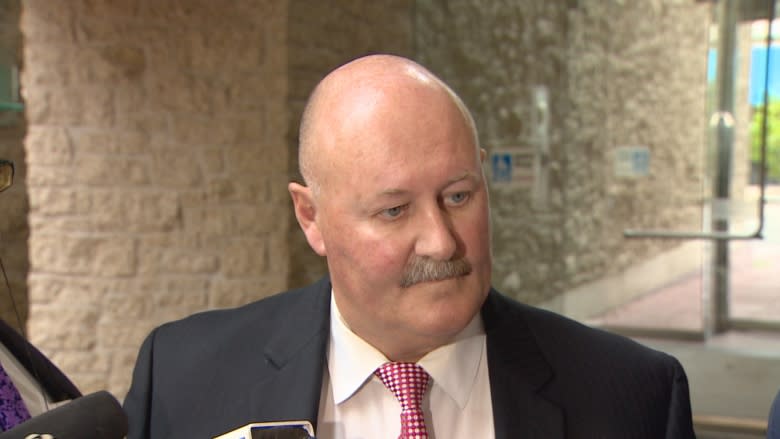Anti-carding activist shares black history with Edmonton police commission
Bashir Mohamed says he sees carding by police as one of the latest examples of discrimination in a long history of racism faced by black Edmontonians.
The 22-year-old anti-carding activist from the local Black Lives Matter group gave a presentation of that history to the Edmonton police commission.
"I just understand it's hard for people who are not from these communities to understand these problems and just how they affect people on a deeper level," said Mohamed Thursday following the presentation in a room where most in attendance were white.
"If you don't understand that, then it's really hard to connect to the stuff we're talking about, and it's really hard to understand why black lives matter in Edmonton."
Mohamed has led the fight in Edmonton against arbitrary street checks where police collect and store personal information from people not suspected of a crime.
On average, Edmonton police check 26,000 people a year. Recent data shows street checks disproportionately target Indigenous and black Edmontonians.
During the presentation at city hall, Mohamed described a long and ugly history of oppression in Edmonton set off by a large wave of black immigrants from Oklahoma starting in 1910.
"The resistance they faced was organized and systemic," he said, noting it was a history that he didn't get taught about growing up attending Edmonton schools. "This history has never been reconciled, nor has the impact been formally acknowledged."
Pointing southward from city hall, Mohamed noted the Ku Klux Klan's local office was at one time four blocks away. Back in 1931, the group burned a cross at Connors Hill to celebrate Daniel Knott's mayoral election win. Knott would go on to approve their request for cross burnings at the Exhibition Grounds, now known as Northlands.
"His (Knott's) portrait is one floor above here, and there's no mention of this history there at all," said Mohamed. "It's actually two steps outside the mayor's office."
Mohamed also described petitions circulated opposing black immigration and pulled up a slide of a newspaper article from 1924 in which black Edmontonians appealed an order barring them from a city pool.
Afterwards, police commission chair Cathy Palmer emotionally thanked Mohamed for his presentation.
"We read your presentation in advance and, shameful really, brings me to tears," Palmer said, choking up. "I want to thank you for coming forward and for the work you're doing."
She also addressed Mohamed's concern that the commission hadn't yet begun a review of street checks since 2015 when the issue first came under increased public scrutiny.
This past summer, the province and police commission both announced they had launched reviews of street checks. The commission is in the process of hiring an independent third party to conduct the review, and expects to provide an update next week.
"I apologize for the impression that EPC (Edmonton police commission) was not pursuing information on the street checks," said Palmer. "Behind the scenes, in fact, we were working. Not to be defensive about it on our behalf, but we were working with the service on various aspects and take it very seriously."
Mohamed has called for a ban on carding by 2018.
Invaluable tool
Staff Sgt. Bill Clark, who provided an update to the commission on cases involving missing and murdered Indigenous women, insisted street checks are a crucial tool for investigators.
"I can't say in these specific ones," he said. "But I can tell you street check data is invaluable in homicide investigations."
He added: "They're not racially motivated by any means."
Staff Sgt. Warren Driechel, who was also at the commission meeting, said Mohamed's presentation doesn't change his view on street checks but contained an important message.
"Now in the context of street checks, for us it's important so we understand where the concerns of the public may be so we're not repeating some of the same mistakes."
Commissioner Karen MacKenzie suggested a move towards greater diversity on the police commission will help.
"There are so many stories that are not told and I think we're entering into that era of reconciliation where we're calling everyone to the table to tell their story."
andrea.huncar@cbc.ca @andreahuncar





